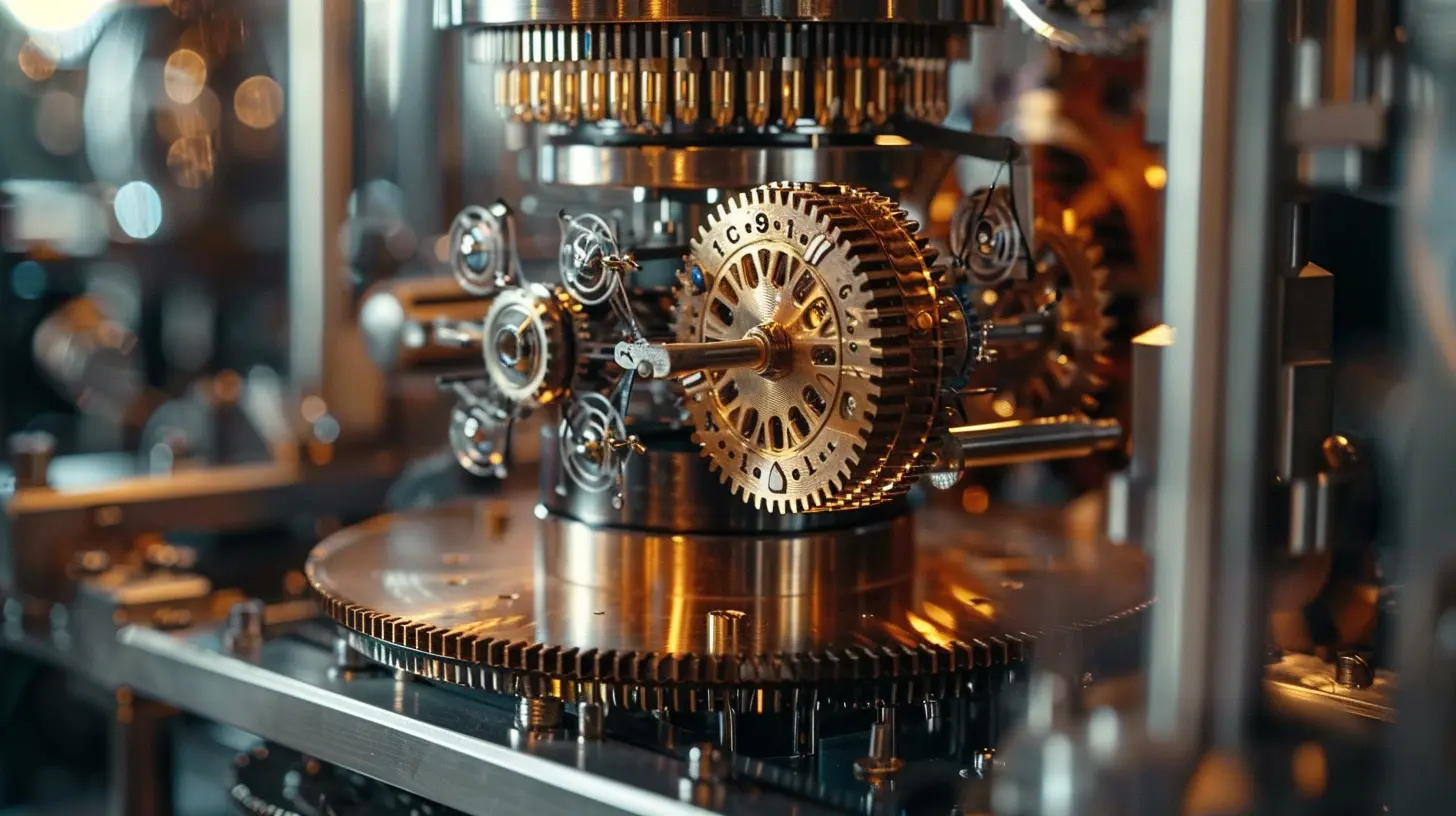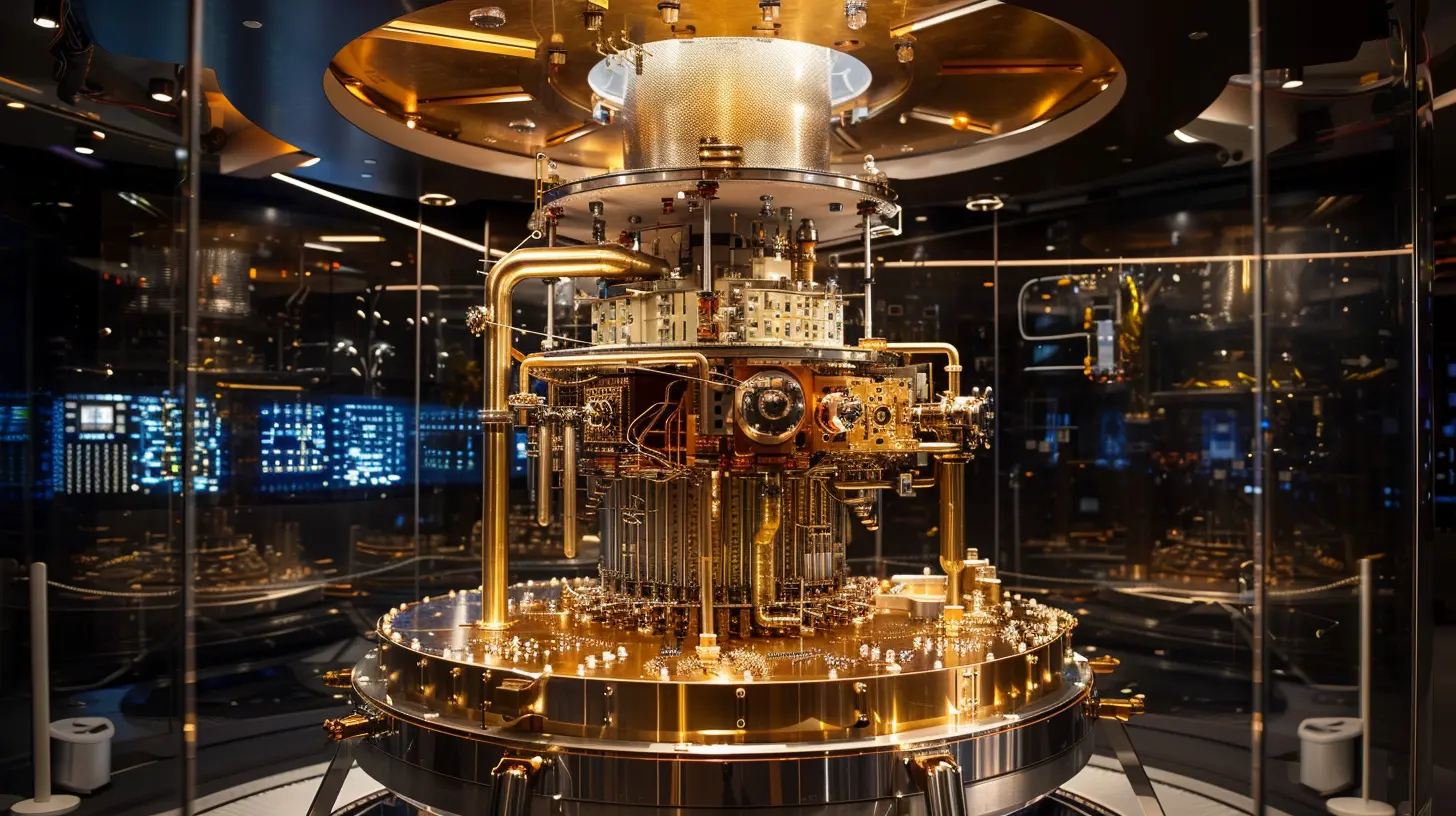Quantum Computers vs Classical Computers: What's the Difference?
18 August 2025
Technology has come a long way, right? From the days of bulky computers that took up entire rooms to the sleek, pocket-sized devices we carry around today, it's been an exciting journey. But there’s something even more mind-blowing on the horizon: Quantum Computers. You’ve probably heard the term tossed around, but what exactly are they, and how do they differ from the trusty classical computers we use every day?
In this article, we’ll dive deep into the fascinating world of quantum computers and compare them to the classical computers we're all familiar with. Whether you’re a tech enthusiast or just curious about the future of computing, stick with me—this is going to be a wild ride through the subatomic world!

What Are Classical Computers?
Let’s start with what we know. Classical computers are the ones we use every day, from the smartphones in our pockets to the massive servers that power the internet. They’ve been around for decades, and they operate based on binary logic—using bits that can be either a 0 or a 1. Simple, right?How Classical Computers Work
Classical computers process information in a predictable, step-by-step manner. They use transistors (tiny switches) to perform calculations, and these transistors are either "on" (1) or "off" (0). This binary system allows classical computers to perform everything from basic arithmetic to complex simulations.For example, when you open an app on your phone, the computer is performing thousands or even millions of binary calculations to make that happen. They get the job done, but there's a limit to how much they can handle at once. As we push classical computers to their limits, we start to see bottlenecks in their performance, especially when dealing with big data or complex simulations.

Enter Quantum Computers
Now, imagine if we could supercharge those 1s and 0s. That’s where Quantum Computers come in. Instead of just dealing with binary states (on/off), quantum computers use something called qubits. These qubits can exist in multiple states at once, thanks to the magical properties of quantum mechanics like superposition and entanglement. Sounds like something out of a sci-fi movie, right? But it's very real—though still in its early stages.How Quantum Computers Work
Quantum computers don’t follow the same rules as classical computers. They leverage the laws of quantum physics to solve certain types of problems much faster than classical computers can. While classical computers use bits (0 or 1), quantum computers use qubits, which can represent both 0 and 1 simultaneously—a concept known as superposition.To make things even more mind-bending, qubits can also be entangled. This means the state of one qubit can instantly affect the state of another, even if they’re miles apart. This is what allows quantum computers to perform multiple calculations at once, potentially solving problems that would take classical computers thousands of years to complete in just seconds.

Key Differences Between Quantum and Classical Computers
Alright, so quantum computers sound cool and all, but what are the actual differences between them and classical computers? Let’s break it down.1. Processing Power and Speed
Classical computers operate sequentially (one step at a time), and their speed is determined by how fast they can switch transistors on and off. In contrast, quantum computers can process multiple pieces of information simultaneously due to superposition and entanglement. This gives them the theoretical ability to solve certain problems exponentially faster than classical computers. For example, tasks like factoring large numbers, optimizing complex systems, or simulating molecular interactions could be done at lightning speeds on a quantum computer.It’s like comparing a bicycle (classical computer) to a jet plane (quantum computer). Sure, the bike will get you to your destination eventually, but the jet? It’ll get you there in a fraction of the time!
2. Data Representation: Bits vs Qubits
Classical computers use bits, which can only be in one state at any given time—either 0 or 1. Quantum computers, on the other hand, use qubits. Thanks to superposition, these qubits can exist in multiple states simultaneously (both 0 and 1 at the same time). This allows quantum computers to explore many possible solutions at once rather than one at a time.Think of a bit as a coin that can either land heads (0) or tails (1). A qubit, however, is like a spinning coin that exists as both heads and tails until you look at it. It’s pretty trippy, but it opens up a whole new realm of possibilities!
3. Error Rates and Stability
While classical computers are pretty reliable (we rarely have to worry about a bit flipping randomly), quantum computers are still in their infancy and can be quite unstable. Quantum states are very fragile and can be easily disrupted by their environment—a phenomenon known as quantum decoherence. When this happens, errors occur, and the calculations can go haywire.Scientists are working hard to develop error-correcting codes and more stable qubits, but for now, this is one of the significant hurdles preventing quantum computers from being widely used.
4. Scalability
Classical computers have become incredibly scalable over the years. We can now fit billions of transistors onto a single chip, which powers everything from desktops to smartphones. Quantum computers, however, are much harder to scale. Building and maintaining a quantum computer requires very specialized conditions, such as near-absolute-zero temperatures, to keep the qubits stable.Scaling up quantum computers to the point where they can outperform classical machines on a large scale is a massive technical challenge. But researchers are making strides, and we’re likely to see significant advancements in the coming years.
5. Types of Problems Solved
Classical computers excel at general-purpose computing. Whether you’re streaming a movie, playing a game, or crunching numbers in a spreadsheet, they handle these tasks with ease. However, they struggle with highly complex problems, especially ones involving vast amounts of data or intricate simulations (think weather forecasting or modeling nuclear reactions).Quantum computers, on the other hand, are incredibly powerful for solving specific types of problems. They shine in areas like cryptography, optimization, and simulating molecular structures—things that would take classical computers an astronomical amount of time to solve. Quantum computers are not meant to replace classical ones but to complement them by solving problems that are currently out of reach.

Real-World Applications of Quantum Computers
Quantum computers aren’t just theoretical—they’re already being developed by companies like IBM, Google, and Microsoft. While we’re still in the early days, the potential applications are mind-boggling. Here are a few examples of how quantum computing could revolutionize various fields:1. Cryptography
One of the most talked-about applications of quantum computers is in the field of cryptography. Classical computers use encryption algorithms that would take millions of years to crack using brute force. However, a sufficiently powerful quantum computer could break these codes in a matter of seconds. This has huge implications for everything from online banking to national security.2. Drug Discovery and Medicine
Modeling molecular interactions is incredibly complex and requires massive computational power. Quantum computers could help scientists simulate these interactions much more efficiently, speeding up the process of drug discovery. This could lead to breakthroughs in treating diseases like cancer or Alzheimer's.3. Optimization Problems
From logistics to finance, optimization problems are everywhere. Classical computers use algorithms to find the best solution, but these can be slow and inefficient for large-scale problems. Quantum computers could solve these optimization problems much faster, potentially revolutionizing industries like supply chain management, transportation, and financial modeling.4. Artificial Intelligence and Machine Learning
Quantum computers could also supercharge AI and machine learning algorithms. By processing data more efficiently, quantum computers could help AI systems learn faster and make better predictions. This could have applications in everything from healthcare diagnostics to autonomous vehicles.The Future: Will Quantum Computers Replace Classical Computers?
Here’s the big question: Will quantum computers one day replace classical computers? The short answer is no—at least not entirely.Quantum computers are not meant to replace classical computers but to work alongside them. Classical computers are still fantastic at day-to-day tasks, and they’ll continue to be our go-to for most computing needs. Quantum computers, on the other hand, will be used for solving highly specialized problems that classical computers struggle with.
Think of it like this: Classical computers are the workhorses, while quantum computers are the sprinters. They’re great at different things, and together, they’ll push the boundaries of what’s possible.
Conclusion
Quantum computers are poised to revolutionize the world of computing, but they’re not here to take over just yet. While classical computers will continue to power our everyday devices, quantum computers will tackle the complex, large-scale problems that are currently beyond our reach.Understanding the differences between quantum and classical computers helps us appreciate both the existing technology and the exciting future ahead. Whether it’s cracking encryption codes, discovering new drugs, or optimizing global logistics, quantum computing opens up a whole new realm of possibilities.
So, what’s the difference between quantum and classical computers? In a nutshell: power, speed, and the ability to solve problems we once thought were impossible. It’s a fascinating time to be a part of the tech world, and the future looks brighter than ever!
all images in this post were generated using AI tools
Category:
Quantum ComputingAuthor:

Adeline Taylor
Discussion
rate this article
1 comments
Zadie Collins
Quantum computers utilize qubits for parallel processing and complex problem-solving, while classical computers rely on bits for linear operations, impacting performance and capabilities.
August 31, 2025 at 4:43 AM

Adeline Taylor
Thank you for your succinct summary! Indeed, the use of qubits allows quantum computers to tackle certain problems more efficiently than classical computers, which are limited by their use of bits.


